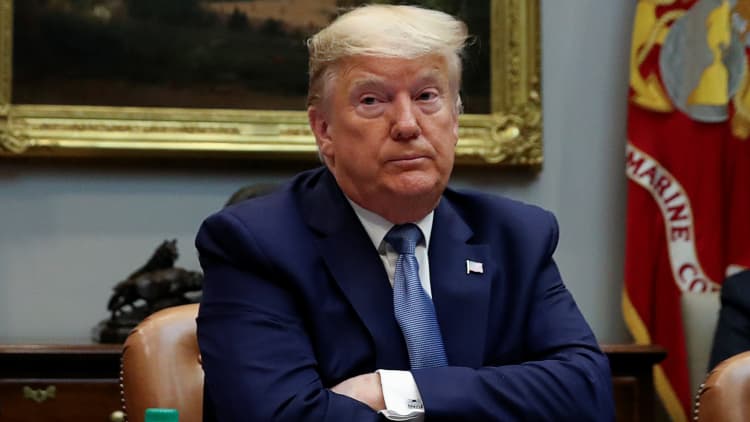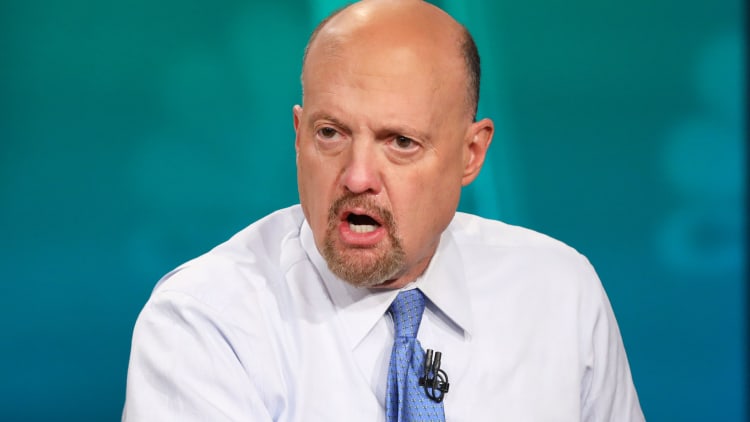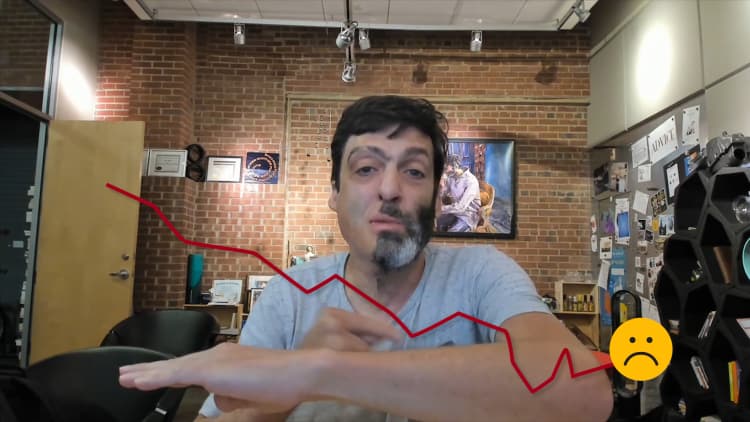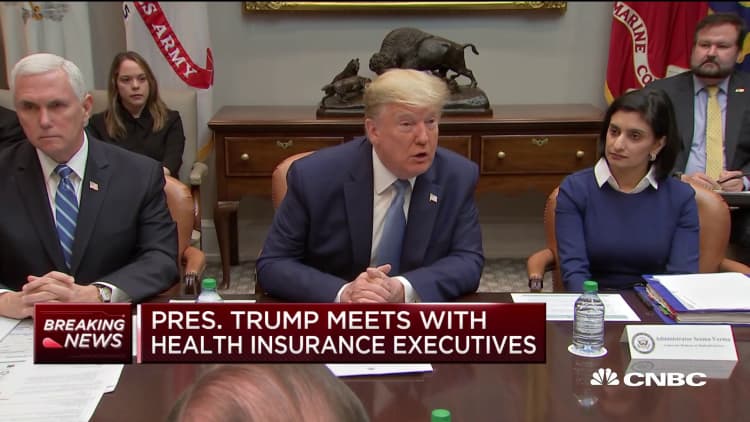
President Donald Trump's promise of a stimulus plan to battle the impact of the coronavirus needs to be presented within days, or the U.S. economy could slump into recession and the stock market could face more sell-offs, according to Wall Street veterans.
Strategists said swift action is necessary after the president said Monday the White House would meet with Senate leaders Tuesday and have an announcement later in the day. Markets continue to look for details, but CNBC's Eamon Javers reported that so far there's no ready plan.
Stock futures rallied overnight and the Dow jumped as much as 945 points in early trading in part on Trump's comments, but the rally fizzled and stocks erased much of the gains as no new details emerged.
The administration is seen as racing against the clock as more coronavirus cases appear in the U.S. The way to prevent spread of the virus is to keep individuals apart, something that in itself creates economic drag.
Already more people are working from home, some schools are closing or offering remote education, and travel is being curtailed. Large gatherings are being discouraged, and business conventions have been canceled while sporting events are either not happening or will go on in empty venues.
"It's very clear that the primary intent of yesterday's press conference was to begin the dialogue about fiscal measures but also equally to attempt to calm the markets," said Julian Emanuel, BTIG head of equity and derivatives strategy. "There's still clearly a long way ago from visualization to actual proposals to implementation."
Looking for details
The president said payroll tax relief was a possibility, and the markets are expecting targeted programs aimed at specific industries, despite reports of disagreement over how to proceed inside the White House.
There is also expectation in the markets that there could be a plan, supported by Democrats, to help workers who lose wages as a result of quarantines, reduced travel activity or other impacts of social distancing.
"We would be very careful about this rally," Emanuel said. He said Monday's 7.8% decline in the Dow was the "fear low, the psychological fear that things couldn't get better. In that respect, the president not only did what he should have done, he did what he had to do."

BlackRock Investment Institute said in a note Tuesday that the economic expansion can continue only if there's decisive action.
"The depth and duration of the economic impact is uncertain but should be temporary as the outbreak itself will eventually dissipate. That requires a decisive, pre-emptive and coordinated policy response to avoid the disruptions to income streams and financial flows that could cause persistent economic damage — and end the cycle," the firm wrote in a note.
While some strategists see the potential for a protracted effort to strike a bipartisan deal, Strategas Research head policy strategist Dan Clifton said he expects there could be a bipartisan blueprint of sorts as early as this week.
"The model for that is if you have [Treasury Secretary] Steven Mnuchin reach out to Speaker [Nancy] Pelosi today and say, 'Hey, the president put out his plan. you need to put out your plan,'" he said. "Speaker Pelosi, who is a great legislator, is going to view that as an opportunity to get many of the initiatives she would like to get done."
Clifton said a plan could amount to about 1% of GDP.
"If you think the president is going to suspend the payroll tax for the rest of the year, you're talking about 1.7% of GDP," he said. "I think it's a possibility. People know there's a fight going on in the White House. They don't know what the fight is about. Is it about the payroll tax cut? Or, is it about the size of the payroll tax cut?"
He said the government could do a direct loan program or give tax breaks to industries hurt by the virus, like cruise ships or airlines.
Clifton said Trump appears serious about presenting a stimulus plan, and he is also under pressure to do so. For one, Trump's reelection is at risk, particularly if the economy falls into a recession.
Clifton said he does not expect any bailout for the oil sector, despite the impact of sharply lower oil prices on Texas, a key Republican state that is seeing more support for Democrats.
"What I would argue is Trump is facing a recession here, and if he faces a recession, it's not Texas that's going to kill him, it's the states in the middle of the country that are going to kill him. He needs to turn this ship around," Clifton said.

Help for businesses and families
Clifton said some elements of Pelosi's proposals could be adopted in a bipartisan effort. Pelosi has said there should be paid sick leave, enhanced unemployment insurance, protective equipment for health care and other frontline workers, affordable medical treatment, and free virus testing, among other proposals.
Vice President Mike Pence and Trump met with health insurance officials Tuesday and announced that the industry would waive fees for testing and assure treatments are covered.
BlackRock argued that households and companies need direct financial support to make up for a short-term loss of income.
"That would prevent these temporary disruptions from turning into a full-blown global recession. Deploying these programs will involve coordination of monetary and fiscal policy. Recognizing that these measures will be temporary justifies an aggressive policy response," BlackRock analysts wrote, adding there should be international coordination.
Governments could provide income support through adjustments to welfare and labor market programs, such as unemployment insurance. BlackRock said direct payments could be made to households, and welfare programs could be tweaked with temporarily enhanced benefits and reduced waiting times for eligibility.
To help companies, the government could halt collection of tax revenues and Social Security contributions. Cash grants and loans could also come through local governments and natural disaster relief agencies. "These are ways to directly provide some relief to company balance sheets that can be quickly implemented within current government programs," they noted.

BTIG's Emanuel said the market is looking for fiscal stimulus to accompany beefed-up monetary stimulus. The Fed has already cut interest rates by an emergency 50 basis points, and he said there is speculation the Fed will move to zero when it meets next week.
But that may not be met positively by markets, since the Fed would be close to zero rates with little cushion for further moves. For that reason, he said the market is looking for something else from the Fed, like a new quantitative easing plan.
Emanuel said the Fed could create a QE-type program to buy short-term debt issued by the government to pay for its stimulus programs. But it's important that fiscal plans are presented before the Fed meets, since its policy initiatives can't provide the support needed to stop a slowdown.
"It's great the dialogue started, but it's extremely clear it's going to be very difficult to put together, and implement the package by the weekend, which is really what you need to do," Emanuel said. "Time is of the essence here."
Emanuel said he expects zero to slightly negative growth in the second and third quarter.
"If you don't get a timely fiscal response, it increases the probability, ... it becomes a more material recession — the kind that could do more lasting damage to consumer and business psychology and obviously the stock market," he said.



